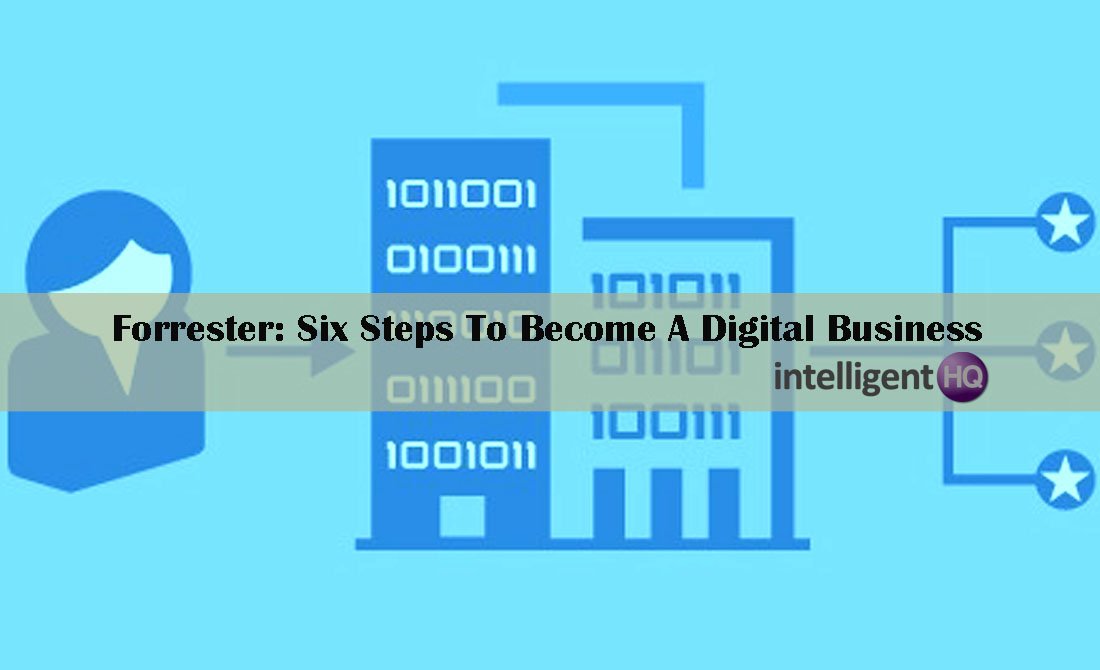Finishing a series of articles about the challenges business and companies face innovating in a forever recession this third part will focus on the social media and technologies and its direct and indirect implications.
“Companies will have to invest in ever more channels to capture the same number of ears. For listeners, it will be baffling. Everyone will need better filters—editors, analysts, middle managers and so on—to help them extract meaning from the blizzard of buzz.” Too much buzz, Economist
So, despite the recent turmoil in the stock market, the only area of business that is recession-proof is the social media industry. Global industrial firms are battening down the hatches, but the ones with vision and capacity to innovate, understand the digital and software challenges, and move faster with a strong execution capacity will continue to grow. Although the Financial and Banking industries are tossing thousands of workers overboard, the financial interest for resources, proper data, education, info, PR and news is bigger than ever.
This is a natural environment for any business to grow massively and become an industry powerhouse. Social media and a strong 360 degrees vision, policy and coordination plan can boost any business that has a strong operational and innovation strategy and set up. However small we are, we have that DNA set up.
What we need to continue doing then is maintain a strong voice using our resources and unique content production. We need to manage it with an inbound digital and SEO social syndication that joins the various platforms and tools out there, including Twitter, Facebook, LinkedIn, Google+, StumbleUpon and the recently emerging Pinterest (that in less than one year is disrupting traffic numbers worldwide). Coordinating this work and digital presence is critical for our growth in creating a viral content publishing and syndication powerhouse.
Keep changing Your Mind-Set and Network
How do you put social media business to work within an organisation? Well, you do it partly through technological set up, but moreover through a definite change in culture and governance. You can only succeed if you keep changing, and keep focused with a specific mind set and within the right network.
This graphic by Dion Hinchcliffe reflects how you can make Social Business Effective and characterises the line between an isolated and integrated social business set up:
When the economy tanks a business or organisation has two options: hole up in a bunker and hope it ends before you run out, or to innovate and emerge stronger than ever when the economy strengthens.
We are in a period when brands, business, and companies are not created, but instead co-created. It’s important therefore to make sure that your vision isn’t unclear or underwhelming, else alignment, community and camaraderie will prove elusive and it will backfire sooner or later.
“During a recession, people tend to say, ‘Let’s stop everything and save money until it’s over,'” says Bernard Meyerson, vice president and CTO of IBM’s systems and technology group. “Well, you’re not going to save your way to greatness.” But you can innovate, change, and improve your way there. So stop moping, act fast and heed our experts’ advice towards an evolving and listening innovative approach.
Businesses need to have the ability to continue looking with hope and opening new doors. It is necessary to recognise new opportunities, this is definitely the greatest challenge, that rivals only with the ability to execute. Emerging and disruptive social technologies are now a key part of the business landscape and customer lifestyle. Innovation, trends, and hype are not going to stop, on the contrary they are going to accelerate, and amplify its reach and succession.
Any company or organisation has to nurture the capacity to identify and consider new solutions and responses with critical priority within companies. This process needs to be in the DNA of any business, and it must be supported by a top-down engagement across any organisation. This focus on innovative collaboration in a decision-making processes and systems can assess and react to any business. Remember: innovation is perpetual.
Make sure you have a Diagnosis for symptoms and its on-going treatment
So in a conclusion modus what is the Diagnosis? The answer is in the keyword change. Continuous change is the key, and has to be a part of your company’s DNA.
Technology and social technologies continues to push our social skills, evolve and permeate work and individual lives, behaviour, expectations and communication. So a company, business, or organisation must look ahead, (with a down to earth approach nevertheless), understand where it needs to go, and lead the way. Leadership is something that only works when it is earned. In the age of empowerment, those who march blindly will follow a path towards extinction; just look how big businesses and brands have been disrupted in very small factions of time. Think about it, some businesses with decades or history or more have just been replaced as market leaders in the space of a few years.
There is a necessary compulsion to continue working hard and improving on an innovation set-up whist (and this is a very important rule) keeping it simple.
We can describe the symptom we find in the society in as one of pregnancy. One can debate, however, that this even this is an example of common misuse of a word, as the majority of symptoms and the history of the word are related to malady. The metaphor of pregnancy is related with the creation of life though, and the same is happening in the present world. Disruption is not negative, it is a new method of creation and it is the fundamental distinction of the “forever crisis” present in which we are operating.
So an answer to this symptom is to understand, and to be open. In other words have a capacity, know how to learn, energy to work, and diminish your comfort zone. Also, always return to a reality check, and focus with a positive persistence and willingness to learn.
The necessary treatment for the symptoms of crisis and disruption are to value creation above all others. And to of course be obsessed with your audience and consumers’ needs, and remember that you need to play to your strengths and be as honest as possible. Be open, and last but not least commit to your idea with passion and dedication.
Some innovation ideas DNA to bear in mind: synthesis:
Bearing this in mind some insights I want to outline:
- Build a community and culture, but start in-house;
- Have a clear message / focus, and even if it changes be honest about it;
- Continuously take a double Reality Check;
- Make sure you don’t go it alone; create partnerships and collaborate;
- Be straight forward, honest and play to your strengths;
- Apply persistence, honesty and rigor;
- Move to where your audience and consumers are;
- Always keep your idea, product, services, or offering in beta and learn from other Industries;
- Make sure you keep on testing your idea;
- Be a leader of change;
- Balance passion and objectivity;
- Keep on learning, adapting and changing!
To finish this series I want to again quote Seth Godin in the article “Forever recession”:
“Job creation is a false idol. The future is about gigs and assets and art and an ever-shifting series of partnerships and projects. It will change the fabric of our society along the way. No one is demanding that we like the change, but the sooner we see it and set out to become an irreplaceable linchpin, the faster the pain will fade, as we get down to the work that needs to be (and now can be) done.”
Undoubtedly to innovate and succeed in business today we cannot question whether we are in a forever crisis or not, but instead to accept it and use it as an opportunity!
Innovating in a forever recession Part 1 – Defining “Forever Recession”
Innovating in a forever recession Part 2

Dinis Guarda is an author, academic, influencer, serial entrepreneur, and leader in 4IR, AI, Fintech, digital transformation, and Blockchain. Dinis has created various companies such as Ztudium tech platform; founder of global digital platform directory openbusinesscouncil.org; digital transformation platform to empower, guide and index cities citiesabc.com and fashion technology platform fashionabc.org. He is also the publisher of intelligenthq.com, hedgethink.com and tradersdna.com. He has been working with the likes of UN / UNITAR, UNESCO, European Space Agency, Davos WEF, Philips, Saxo Bank, Mastercard, Barclays, and governments all over the world.
With over two decades of experience in international business, C-level positions, and digital transformation, Dinis has worked with new tech, cryptocurrencies, driven ICOs, regulation, compliance, and legal international processes, and has created a bank, and been involved in the inception of some of the top 100 digital currencies.
He creates and helps build ventures focused on global growth, 360 digital strategies, sustainable innovation, Blockchain, Fintech, AI and new emerging business models such as ICOs / tokenomics.
Dinis is the founder/CEO of ztudium that manages blocksdna / lifesdna. These products and platforms offer multiple AI P2P, fintech, blockchain, search engine and PaaS solutions in consumer wellness healthcare and life style with a global team of experts and universities.
He is the founder of coinsdna a new swiss regulated, Swiss based, institutional grade token and cryptocurrencies blockchain exchange. He is founder of DragonBloc a blockchain, AI, Fintech fund and co-founder of Freedomee project.
Dinis is the author of various books. He has published different books such “4IR AI Blockchain Fintech IoT Reinventing a Nation”, “How Businesses and Governments can Prosper with Fintech, Blockchain and AI?”, also the bigger case study and book (400 pages) “Blockchain, AI and Crypto Economics – The Next Tsunami?” last the “Tokenomics and ICOs – How to be good at the new digital world of finance / Crypto” was launched in 2018.
Some of the companies Dinis created or has been involved have reached over 1 USD billions in valuation. Dinis has advised and was responsible for some top financial organisations, 100 cryptocurrencies worldwide and Fortune 500 companies.
Dinis is involved as a strategist, board member and advisor with the payments, lifestyle, blockchain reward community app Glance technologies, for whom he built the blockchain messaging / payment / loyalty software Blockimpact, the seminal Hyperloop Transportations project, Kora, and blockchain cybersecurity Privus.
He is listed in various global fintech, blockchain, AI, social media industry top lists as an influencer in position top 10/20 within 100 rankings: such as Top People In Blockchain | Cointelegraph https://top.cointelegraph.com/ and https://cryptoweekly.co/100/ .
Between 2014 and 2015 he was involved in creating a fabbanking.com a digital bank between Asia and Africa as Chief Commercial Officer and Marketing Officer responsible for all legal, tech and business development. Between 2009 and 2010 he was the founder of one of the world first fintech, social trading platforms tradingfloor.com for Saxo Bank.
He is a shareholder of the fintech social money transfer app Moneymailme and math edutech gamification children’s app Gozoa.
He has been a lecturer at Copenhagen Business School, Groupe INSEEC/Monaco University and other leading world universities.




























